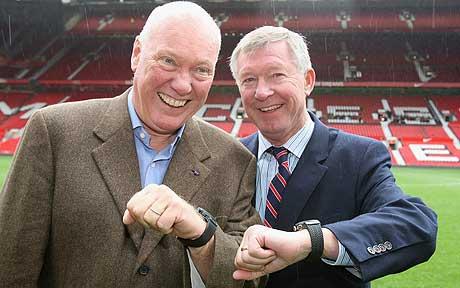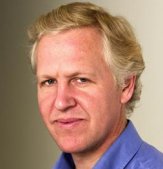Hublot, the Swiss watchmaker, has some singular ideas about sports sponsorship.
You might expect a luxury brand whose products have an average retail price of SFr23,000 to take an interest in, say, polo. Or top-end sailing, or maybe Formula One.
And, indeed, Hublot is involved with some of these.
But football? Well, let’s just say it would not be at the top of my list.
Yet, since 2008, Hublot, a company with annual turnover of around SFr300 million and fewer than 300 employees, has sponsored Manchester United.
Why? Prawn sarnies are one thing, but even today, with the sport gentrified to a degree that would have seemed unthinkable a generation ago, you would not expect the Stretford End to be a sea of £10,000 timepieces.
To answer this question, Jean-Claude Biver, Hublot’s extrovert chief executive, recalls a Turin derby in the late 1980s, less than a decade after the company’s inception.
“I went with Lavazza, the coffee people, to see Juventus,” he says.
“And suddenly I saw football was also involved in luxury.
“Slowly, footballers were becoming like Hollywood stars.
“Coaches and owners had money and were leaders.
“So I said to myself, ‘If we enter football, we will be talking to our markets.
“A huge number of people involved in the football market could buy our watches.’
“This is the same in luxury sports such as polo and yachting.
“But in polo and yachting, I cannot speak to the next generation.
“With football, we can get two types of consumer: the ones who can buy our watches now; and the ones who will be able to buy them tomorrow.
“But we also get the ones who will never be able to buy our watches.
“This is important for our brand: after all, people who will never be able to afford a Ferrari know very well what that brand represents.”
This thinking was reinforced by the fact that Hublot was a relative latecomer to its industry.
“And if you are a latecomer,” Biver insists, “You need, as an obsession, to be different.
“We saw nobody was in football.
“Not one luxury brand…
“So we said, ‘We have to go into football – whatever it costs.'”
Hublot became official timekeeper of the Euro 2008 football tournament and it was here that it got to know David Gill, Manchester United’s chief executive.
“During Euro 2008 a lot of people came to our hospitality zone because they were curious to discover who Hublot was,” Biver says.
A few months later, in October 2008, Hublot’s sponsorship of Manchester United was unveiled.
And why the Red Devils?

“Because, number one, it is a legend,” explains Biver (pictured with Manchester United manager Sir Alex Ferguson)
“That means that they cannot lose any more: a defeat cannot affect their image and prestige.
“Manchester United is not a football team, it’s a brand.
“If you are looking at Manchester United as a football team, you are missing half the value.
“We also sponsored Manchester United in order to promote our brand in China.
“We use them as an ambassador.”
I encountered Biver at the International Football Arena in Zurich, where he recounted a fascinating story about the background to advertisements featuring another football legend, Diego Maradona, that is well worth relaying.
“Initially, it was not our idea,” Biver says.
“It just happened that he decided to buy two of our watches.
“One day, we saw a picture of him wearing them.
“What was unusual was that, whereas people do sometimes buy two different watches at the same time, his two were just the same.
“We found his jeweller who told us that he was a long-time customer, he loved watches, but he would always buy two of each one and then ask the jeweller to engrave the name of one of his two daughters on each watch.
“I found the story fantastic because that’s the kind of customer we want.
“So finally we got in touch with him and agreed a small contract.”
Maradona, of course, coached Argentina at last year’s World Cup in South Africa – another tournament at which Hublot served as official timekeeper, as it will at the next World Cup in Brazil in 2014.
David Owen worked for 20 years for the Financial Times in the United States, Canada, France and the UK. He ended his FT career as sports editor after the 2006 World Cup and is now freelancing, including covering the 2008 Beijing Olympics and 2010 World Cup. Owen’s Twitter feed can be accessed at www.twitter.com/dodo938
